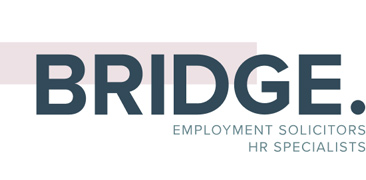Bullying and Harassment
If you feel you’re being treated unfairly at work, it’s important to understand what type of treatment you’re actually experiencing. This is because you have different rights under the law, depending on which of the following is taking place:
- bullying
- discrimination (see separate section)
- harassment
- victimisation
Often, we find, employees or workers simply have a feeling that “something isn’t quite right” with what is happening to them at work. When they come to see us, we can help them to see if the law can help them and help them pinpoint what the issues they experienced are.
Bullying is behaviour from a person or group that’s unwanted and makes you feel uncomfortable. It may make you feel frightened or upset, or you may be feeling humiliated or degraded. It’s never a pleasant experience to be bullied, and at Bridge we can help you by letting you know what legal rights you may have and talking you through practical steps to resolve matters where possible.
By law, it’s harassment when bullying or unwanted behaviour is about any of the following (known as ‘protected characteristics’):
- age
- disability
- gender reassignment
- race
- religion or belief
- sex
- sexual orientation
- Pregnancy and maternity
It can include one-off incidents or a pattern of behaviour and can be spoken, written or even physical behaviour. You don’t have to have objected to be protected. You can also be protected if you do not have the characteristic in question, but people think you do, or if you are being targeted because of your association with someone who does.
There are also specific provisions in relation to sexual harassment.
Victimisation’ is being treated unfairly because you made or supported a complaint to do with a ‘protected characteristic’, or someone thinks you did.
For example, your colleague makes a sexual harassment claim against your boss. After you give evidence as a witness to support their claim, your boss starts treating you unfairly.
The first step is nearly always to tell someone at work what is happening and how it’s making you feel. We can help you prepare a formal grievance and show you how to follow the relevant procedure at work. Even if there’s no policy, your employer has a legal duty of care to protect you while you’re at work.
In some instances, this may not be appropriate, or you may not feel comfortable or safe doing so – especially in a smaller environment.
In the event that you don’t feel able to use internal procedures, or that this doesn’t help, you may have various rights, depending on the nature of the bullying, and how long you’ve been employed. We can help you work out which route to take, and where possible try to ensure that if you leave you do so in the best way possible for you.
If you feel that you might be experiencing any of these, or, if you just feel that something at work isn’t quite right, give us a call and let us help you.
For more information or to discuss your circumstances with our Bullying and Harassment Solicitors, please call us on 01904 360295, email enquiries@bridgeehr.co.uk or complete our contact form.
Request a callback
Please enter your details below and one of our specialists will call you as soon as possible.


